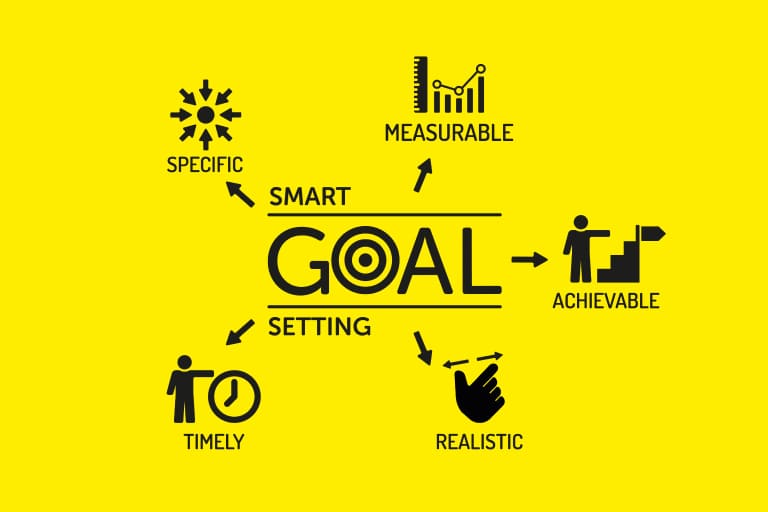Every business needs an online presence to have its best shot at reaching potential customers. But being online is no longer enough. You need to understand what’s working and what’s not, and where to optimize your efforts for maximum impact. Yet many companies aren’t sure whether their digital marketing efforts are making a real impact or driving tangible business results. That’s why you need to understand how your digital marketing efforts are performing. Now, let’s know how to effectively measure your digital marketing performance and achieve results that matter.
Why Performance Measurement Matters?
Why dedicate valuable time and resources to tracking numbers?
Firstly, measurement builds clarity.
It provides concrete data to support your marketing decisions, helping you understand what works and what doesn’t.
Secondly, it builds growth.
By identifying areas for improvement through analyzing digital marketing KPIs, you can optimize your campaigns and maximize your return on investment (ROI).
Finally, it demonstrates success.
Data-driven reports impress stakeholders and clients, showcasing the tangible impact of your marketing efforts.
Now, Let’s Set SMART Goals
Setting clear goals is essential for effective performance measurement. Vague aspirations like increasing brand awareness are no longer an effective goal.

Instead, use the SMART framework:
- Specific: Identify specific, measurable objectives, e.g., “increase website traffic by 20% in Quarter 1.”
- Measurable: Ensure your goals can be quantified and tracked using relevant metrics.
- Attainable: Set realistic goals that challenge you but remain achievable.
- Relevant: Ensure your goals align with your core business objectives.
- Time-bound: Assign deadlines to your goals to foster accountability.
Know The Key Digital Marketing Metrics To Track Success
Now that we understand the importance of using metrics and optimization, let’s look at some important digital marketing KPIs and performance indicators used by top organizations across different marketing channels.
Website Traffic
- Unique visitors: Monitor the number of unique visitors on your website.
- Pageviews: Track the number of times each page is viewed.
- Average session duration: See how long visitors engage with your site content.
- Bounce rate: Monitor the percentage of visitors leaving after viewing just one page.
Search Engine Optimization (SEO)

- Organic traffic: Analyze traffic coming from unpaid search engine results.
- Keyword rankings: Track your position for relevant keywords on search engine result pages (SERPs).
- Backlinks: Monitor the number and quality of websites linking to yours, a crucial SEO factor.
Pay-Per-Click (PPC) Advertising
- Impressions: Keep tabs on the frequency of your ad displays.
- Clicks: Track the number of times users click on your ad.
- Click-through rate (CTR): Calculate the percentage of impressions leading to clicks.
- Conversions: Measure the number of users who take a desired action, like making a purchase.
- Cost per acquisition (CPA): Analyze the cost to acquire each new customer through PPC ads.
Social Media Marketing

- Follower growth: Track the number of new followers on your social media channels.
- Engagement rate: Measure the percentage of followers interacting with your content (likes, comments, shares).
- Reach: Analyze the number of unique users who see your content.
- Brand mentions: Monitor mentions of your brand across social media platforms.
Email Marketing
- Open rate: Track the percentage of email recipients who open your email.
- Click-through rate (CTR): Evaluate the percentage of email recipients interacting with your links.
- Unsubscribe rate: Keep track of the proportion of subscribers who opt out of your email list.
- Conversion rate: Analyze the percentage of email recipients who take a desired action, like making a purchase.
Also, Don’t Forget The Qualitative Analysis
While performance numbers and metrics are crucial for digital marketing improvement, they only tell part of the story. To get a complete picture, supplement quantitative data with qualitative insights.

Here are some techniques to enhance your understanding and strategy.
- Customer feedback: Gather insights from surveys, reviews, and social media comments.
- Heatmaps and screen recordings: Understand user behavior on your website.
- Competitor analysis: Compare your performance to industry leaders.
Finally, Choose The Right Tools
There are many tools at your disposal for tracking and analyzing your digital marketing performance, including:
- Google Analytics: A free and robust platform for website traffic analysis.
- Search console: Monitor your website’s search performance and optimize for visibility.
- Social media analytics: Built-in analytics provided by each social media platform.
- Email marketing platforms: Track email open rates, click-through rates, and more.
- Paid advertising platforms: Track campaign performance for Google Ads, Facebook Ads, etc.
By consistently monitoring your KPIs, analyzing data, and making informed decisions, you can turn your digital marketing campaigns to success. However, getting there is not always easy.
With the right practices, the goal is not far. Always prioritize relevant digital marketing metrics, utilize effective tools, and interpret your data thoughtfully. Ensure your digital marketing efforts are driving real results and contributing to your overall business success, including a positive ROI in digital marketing.
Start measuring now!
Frequently Asked Questions
Q. How do you evaluate your digital marketing efforts?
A. Evaluating digital marketing efforts requires setting clear goals, identifying relevant metrics (KPIs) like website traffic or conversion rates, tracking data over time, and analyzing results to see if goals are met and where to improve.
Q. What is performance analysis in digital marketing?
A. Performance analysis in digital marketing is the process of assessing how well your online campaigns and strategies are achieving your goals.
Q. What is ROI in digital marketing?
A. ROI in digital marketing measures the profit earned for every dollar spent on online marketing efforts. It helps you understand if your campaigns are generating revenue and how efficiently they’re doing so.
Q. Why are KPIs important in digital marketing?
A. KPIs in digital marketing are crucial for measuring campaign success, guiding adjustments, and proving campaign value.
Q. What are KPIs in marketing examples?
A. Marketing KPIs are measurable values that track progress towards marketing goals. Examples include website traffic, conversion rates, customer acquisition cost, and return on investment (ROI).
Q. What are the three types of KPIs for digital media?
A. There are three main types of KPIs for digital media: awareness, engagement, and conversion.




